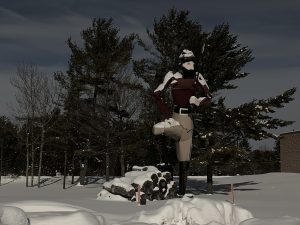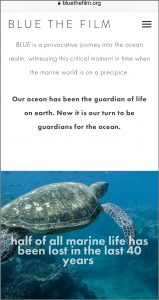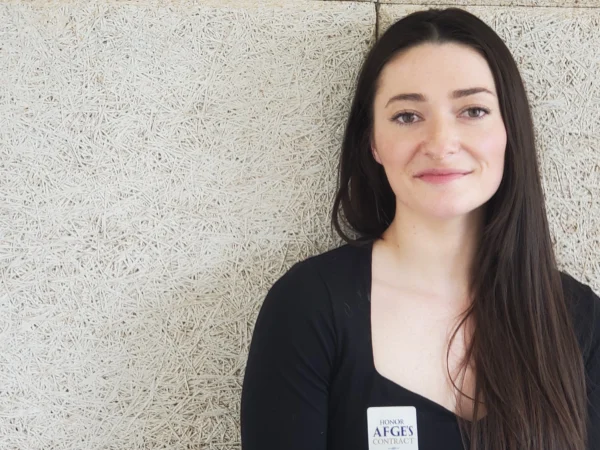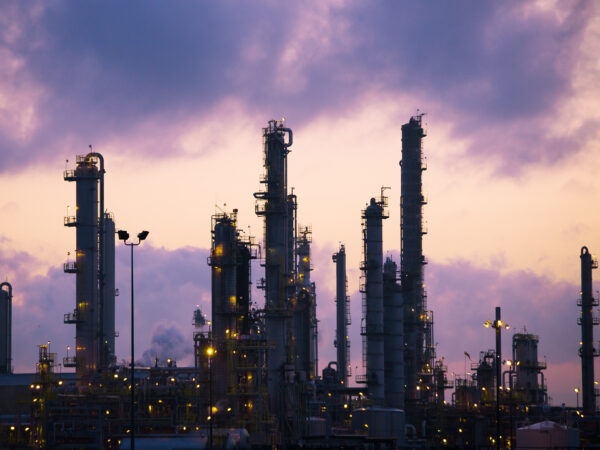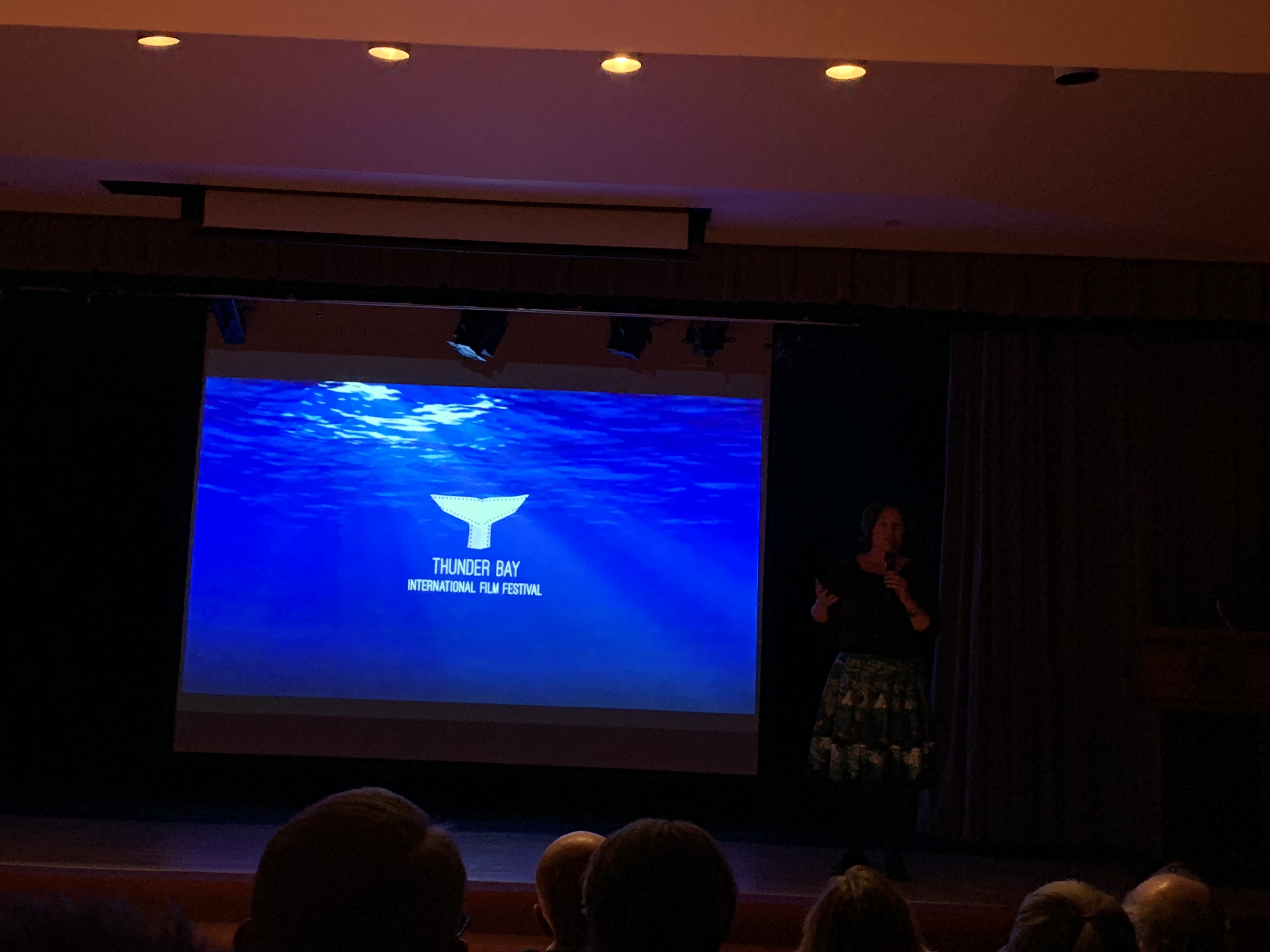
Michigan film festival shows some despair but also hope about the Great Lakes.
ALPENA — Watching films with footage of surfacing dolphins in Mexico and so-ugly-they’re-cute seabirds in the South Pacific could have been an exercise in escapism.
After all, the Thunder Bay International Film Festival is held the last weekend of January along a frozen Lake Huron coastline.
View the trailer HERE.
But there in the Alpena Community College auditorium a few days ago, fleece-clad audiences were not only immersed in stunning footage of beaches, creatures, sun and surf. They also learned about emerging and enduring issues in the world’s watery environments including the Great Lakes.
Plastics in the food chains that start with plankton and end up in humans.
Sunscreen chemicals affecting coral reefs.
Conversations about water withdrawals.
International markets driving illegal wildlife trade and unsustainable fishing.
Human responsibility was a definite theme in many of the 50 or so films on the agenda, with filmmakers honestly but not too biasedly depicting how daily living, energy use, and other industries impact communities and ecosystems locally and globally.
But audiences also saw how people are helping restore, protect and sustain watersheds, lakes and oceans.
There’s the coalition of citizens and business leaders working on the Muskegon Lake Area of Concern and the team of rangers removing “ghost nets” from Australian beaches as depicted in the film “Blue.”
In dozens of other festival screenings, filmmakers brought audiences the stories of dedicated researchers, advocates, policymakers and regular people who are making a difference all over the planet.
And sometimes they’re having fun doing it.
Take “Crossing Lake Superior,” for example, a film by local TV producer Corey Adkins that followed three men on stand-up paddleboards as they crossed the biggest, coldest Great Lake to raise awareness of environmental and historical issues.
You watch that film on YouTube:
The festival also included “The Return of the Harbor Porpoises” which could have been called “How the Golden Gate Bridge Became a Marine Wildlife Observatory.”
That’s on YouTube as well:
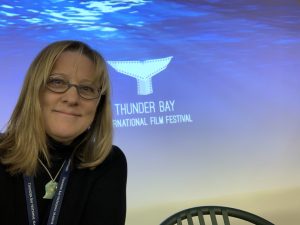
Sandra Svoboda, Program Director Great Lakes Now at the Thunder Bay Film Festival, Photo courtesy of Sandra Svoboda
The festival would have been held at the Thunder May National Marine Sanctuary’s Heritage Center but for the federal government shutdown. Still, festival organizers including sanctuary staff and members of the “Friends” organization made the seventh annual event about the films, not the politics.
And about the lakes and the oceans.
Three Great Lakes Now/Detroit Public Television documentaries were chosen for the festival. Program Director Sandra Svoboda participated on a filmmakers panel at the event, and met with audiences after screenings.
1 Comment
-
Great story. Looking forward to your Lake Erie crossing.
I can see Lake Erie from my house in the town of Leamington. Thanks for bringing awareness to this precious natural resource.


